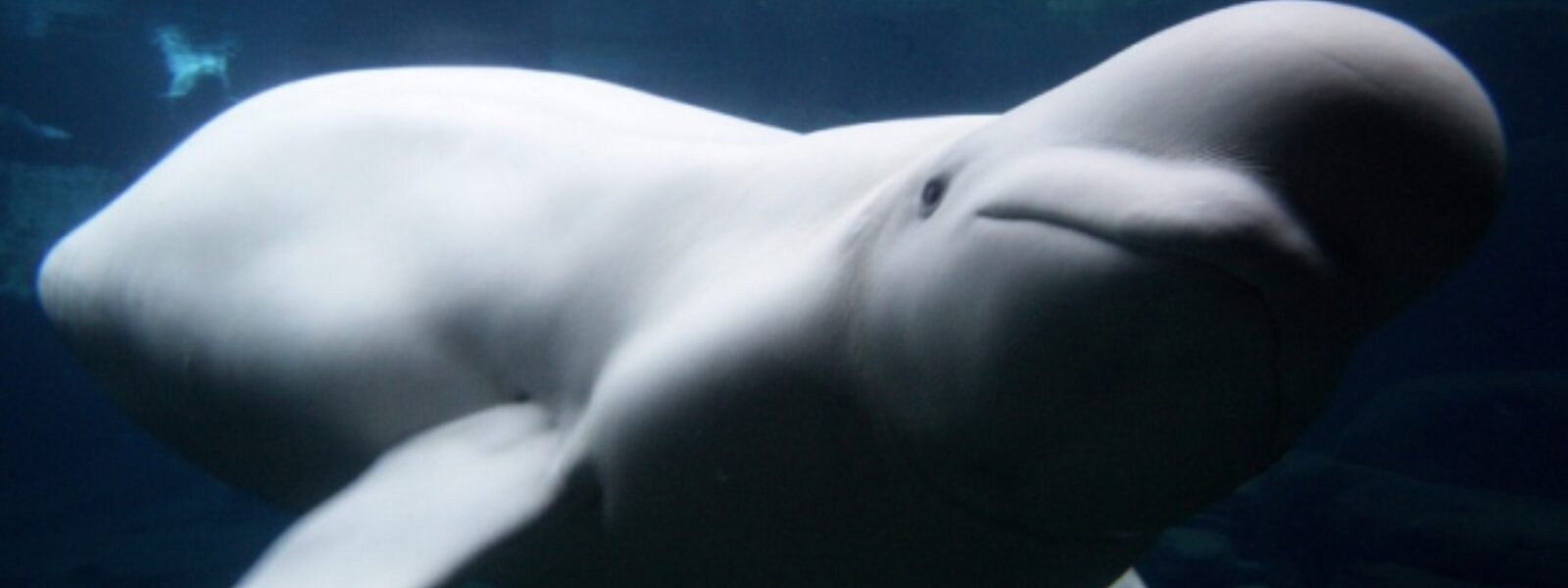

Organizations including the International Marine Mammal Project, People for the Ethical Treatment of Animals (PETA) and others have sent a letter to the Park Board Commissioners requesting that they immediately put a stop to imports of belugas, whales or dolphins destined for the Vancouver Aquarium, and to permanently ban keeping cetaceans in captivity in Vancouver.
“Stopping imports would throw a wrench into the aquarium’s cruel beluga breeding program, in which the whales endure the trauma of forced insemination and the loss of many calves,” said David Phillips, director of the International Marine Mammal Project. “Preventing the aquarium from bringing their whales currently on loan, or their offspring, back to their facilities is a step in the right direction. Nor should the Aquarium be able to import other belugas from overseas, most of which are caught from the wild from depleted populations.”
Below is the text of the letter and a list of signatory organizations.
To Vancouver Park Board Commissioners, cc. Vancouver City Hall
Dear Vancouver Park Board Commissioners,
Within just weeks of each other, the Vancouver Aquarium has lost two beluga whales, a mother and her calf, to uncertain causes. The mother beluga Aurora, died on November 25. She began showing symptoms of distress, particularly stomach distress, immediately after her calf, Qila, died two weeks prior.
Aurora was believed to be about 30 years old and was captured in the wild; Qila was only 21 and born in captivity at the Vancouver Aquarium. Beluga whales in the wild can easily achieve lifespans that are twice as long.
According to records, at least 8 orcas, 6 narwhals, 11 belugas, and more than 20 other cetaceans have died at the Aquarium over the past half-century. Six captive beluga whales have died there in the past 2 years alone. It is a fact that the Aquarium has a dismal record of keeping captive cetaceans alive.
Captivity is known to have many adverse impacts on cetaceans, which for belugas are very similar to the impacts on orcas and other dolphins revealed by the documentaries “Fall From Freedom” and “Blackfish”. Beluga whales suffer greatly from lifetimes of confinement. They are extremely intelligent and sensitive; stress, boredom, and other symptoms from captivity reduce their immune system, rendering them increasingly susceptible to disease.
In light of the deplorable record the Vancouver Aquarium has on keeping cetaceans alive over the last 50 years, we, the undersigned international non-profit organizations implore the Vancouver Parks Board to put and end to the suffering at the Aquarium. In light of the recent deaths at the facility we believe that Commissioners should make moves to firstly put a stop to any imports of belugas or dolphins to the Aquarium and secondly move swiftly to permanently ban keeping cetaceans in captivity in Vancouver.
The International Marine Mammal Project of Earth Island Institute on behalf of,
Animal Rights, Sweden
Turtle Island Restoration Network, USA
Green Vegans, Seattle, Washington, USA
Pro Wildlife, Germany
OceanCare, Switzerland
Whale and Dolphin Conservation, UK
Nantucket Marine Mammals, USA
In Defense of Animals, USA
Finns for the Whales, Finland
Dolphin Connection, USA
COMARINO, Mexico
People for the Ethical Treatment of Animals (PETA), USA
ANZURES, Mexico
BlueVoice.org, USA
EMS Foundation, South Africa
Born Free USA
Cetacean Society International, USA
Namibians Against the Plundering of Our Seas, Namibia
Australians for Animals, Australia
California Gray Whale Coalition, USA
Animal Rights Hawai’i, USA
Australia for Dolphins, Australia
ReEarth, Bahamas
Grupo de los Cien, Mexico
Dolphin Project, USA
MEER e.V., Germany
The Animal Rights Alliance, Sweden
Marine Connection, UK
The Whaleman Foundation, USA
Marine Animal Rescue, USA
Klamath Forest Alliance, USA
Environmental Protection Information Center (EPIC), USA
Photo credit THE CANADIAN PRESS/Darryl Dyck